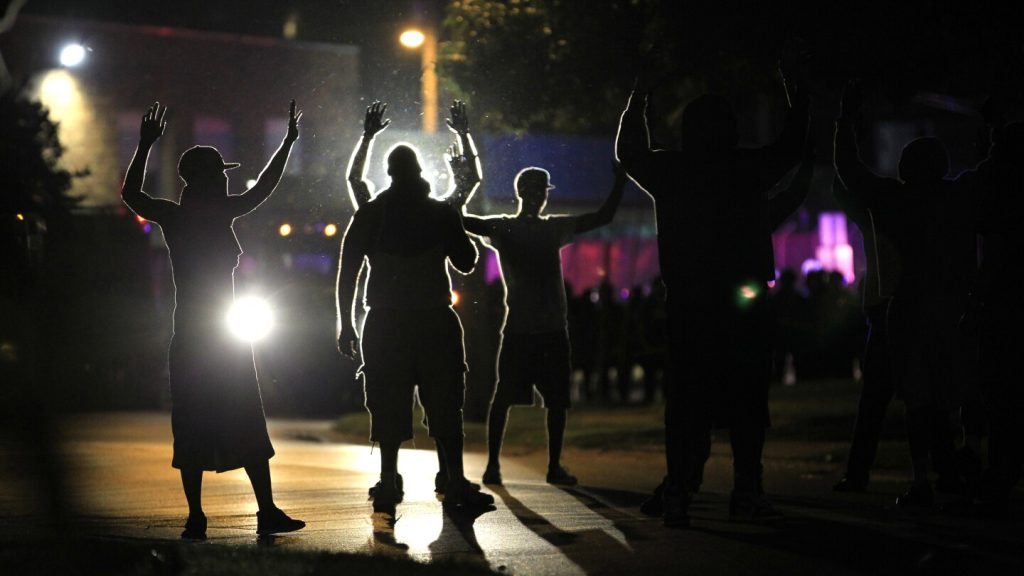In 2015, Forward Through Ferguson was established with the goal of enacting societal changes outlined in the Ferguson Commission report to address the issues that led to the police shooting death of Michael Brown Jr. and subsequent riots in Ferguson, Missouri. The nonprofit, along with similar organizations, initially received generous support from corporations like Anheuser-Busch and philanthropic organizations such as the Bill & Melinda Gates Foundation. However, donations quickly dried up, with some groups citing shifting priorities as the reason for withdrawing financial support. Forward Through Ferguson’s executive director, Annissa McCaskill, highlighted the difficulties faced by nonprofits in securing long-term funding, especially during times of heightened social awareness.
Despite facing challenges in funding, Forward Through Ferguson has received significant donations following the police killing of George Floyd in 2020. This influx of financial support, along with revenue generated from racial equity training for government departments and businesses, enabled the organization to expand its staff from five to ten employees. McCaskill emphasized the importance of incremental progress in fundraising, noting that even small donations can add up over time. However, she expressed a desire for more stable, unrestricted funding to support the organization’s general operations instead of relying on program-specific donations.
The Ferguson uprising in 2014 sparked a wave of corporate initiatives aimed at addressing racial inequality and community development. Emerson Electric, based near where Michael Brown Jr. was killed, launched the “Ferguson Forward” initiative, committing millions of dollars to support education, scholarships, and business development in the local community. Experts suggest that corporate involvement in community donations can stem from a combination of altruism and business interests such as employee retention and customer loyalty. Recent trends indicate a shift towards companies providing goods and services in addition to monetary donations, reflecting a broader approach to corporate social responsibility.
The current backlash against diversity, equity, and inclusion programs has made it challenging to measure corporate commitments to social causes, even as companies dedicate more resources to these initiatives. The lack of transparency in corporate pledges around racial equity has prompted researchers to create databases to track companies’ actions in this area. Some major corporations, including AT&T and Meta, have fulfilled their pledges to support racial equity, while others, like Johnson & Johnson, have made significant contributions to address racial health inequities. However, verifying the accuracy of publicly disclosed figures remains a challenge, particularly when donations are made through corporate entities rather than foundations.
Community development financial institutions (CDFIs) play a crucial role in distributing donations from corporations, government agencies, and philanthropic sources to support local businesses and organizations. These institutions serve as financial first responders during major events, mobilizing resources to address community needs. While CDFIs have struggled to attract corporate support in the past, there is growing recognition of their effectiveness in driving social impact and economic empowerment. Forward Through Ferguson has supported numerous community groups through its Racial Healing + Justice Fund, contributing to ongoing efforts to address systemic issues highlighted by the Ferguson Commission’s report.
As Forward Through Ferguson continues its work to implement the recommendations of the Ferguson Commission and promote racial equity, Executive Director Annissa McCaskill remains hopeful about the progress being made. She acknowledges that achieving lasting change will take time, but she is encouraged by the activism and awareness among younger generations. McCaskill’s son and his peers are actively engaged in advocating for social justice and systemic reforms, signaling a shift in attitudes and actions within the community. While challenges persist in securing sustainable funding for nonprofits like Forward Through Ferguson, the organization remains committed to driving positive change and addressing the root causes of racial inequality in the St. Louis region.


